Did you know there are over 1.5 billion people in the world who speak English?
So it’s time for you to master English with IvyPanda. Choose your learning strategy, learn grammar and punctuation basics, enhance your vocabulary, and take your language to the next level.
Want more?
Check out these 50 common mistakes in English and don’t forget to grab your bonus: the best language learning apps for your daily studies.
Let’s dive into the world of English learning!
Best Strategies for Learning English Fast
Well, it’s time to plan your approach or choose one from our English learning strategies list:
1. Watch a TV series
The success in learning any language lays in motivation. When you have strong motivation and coherent aim, 70% of success is guaranteed. Another secret to language learning is full immersion.
You may ask…
How can I immerse myself in an English-speaking environment without living in the UK, US, or another English-speaking country?
And here’s the deal:
Watch TV shows! Most people watch a series on a regular basis: some people watch every day. For others, it is a reward after a hard workweek.
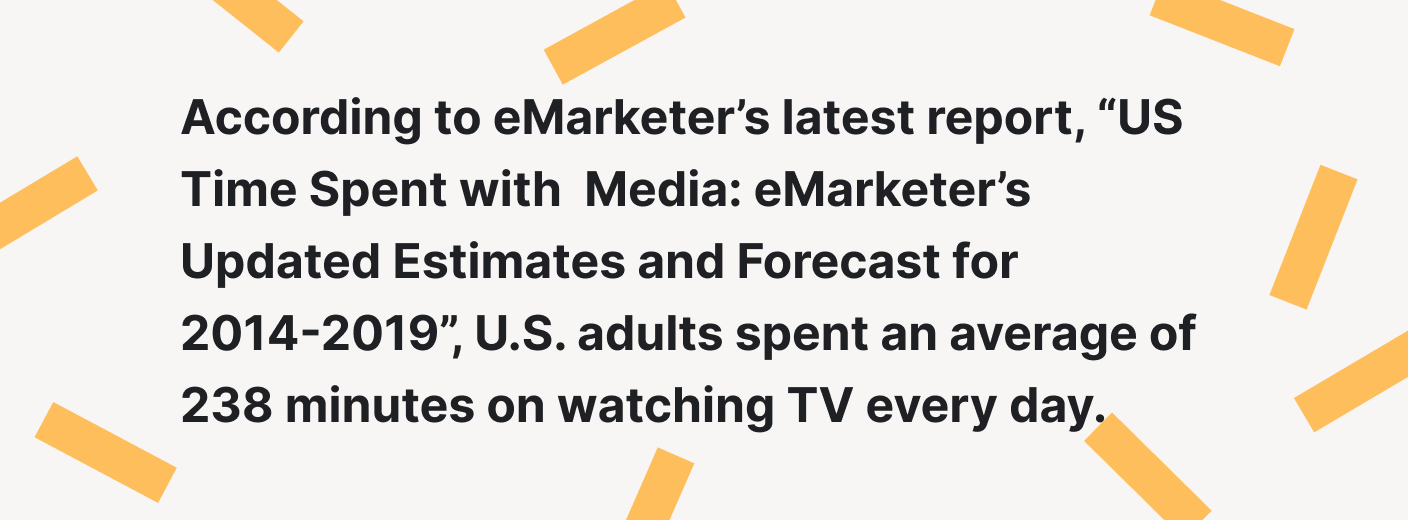
Well, we have good news for you! You don’t need to ditch your desire to learn English fast for the sake of your escape into the movie world anymore.
Bottom line?
Watch your favorite series and movies in English! What benefits will you get? First, you’ll improve your English pronunciation and speaking skills. Second, if you turn on the subtitles, it will help you to understand better what the actors are saying. Third, you can always press pause and replay the scene (by the way, the more you watch, the fewer pauses you will make).
So,
What TV series should you watch to learn English? Here’s IvyPanda team’s shortlist:
Sherlock (BBC One)

Starring: Benedict Cumberbatch, Martin Freeman, Rupert Graves, Una Stubbs, Mark Gatiss, Louise Brealey, Andrew Scott, Amanda Abbington
The directors of the series “Sherlock” put the Conan Doyle heroes into the modern world. All the heroes of the series, including professor Moriarty, are exceptional characters, different from the familiar images. For example, Moriarty does not look like a villain; he is represented as the complete opposite of Holmes, but with the same vivid and robust character. Holmes is characterized by an absurdity of character and fantastic intellectual abilities.
Why watch: if you want to pick up English spoken in England, then Sherlock will become a must-watch for you.
Game of Thrones (HBO)

Perhaps, “The Game of Thrones” is the most popular series in the world. Over 10 million viewers regularly watched its latest season on HBO (and millions more watched it illegally across the world). The plot is based on George Martin’s fantasy saga named “The Song of Ice and Flame.”
“The Game of Thrones” (GoT) became the most high-ranking project in HBO history in 2014.
So, why should you watch it?
First, the world shown in the GoT is a projection of the modern world. It parallels the current global political situation.

Second, despite the bloodthirst of the heroes and the shocking number of murders, the GoT has a specific morality. The series ethics make the viewer resonate for cause-effect relationships and non-standard conclusions.
Third, the abundance of the characters and the absence of wholly positive ones among them allow you to determine which of the characters to sympathize.
Fourth, the GoT is about quality drama, script, and production. You can’t foresee the course of events from standard logic. All the characters are contradictory and ambiguous. A large number of situations and storylines fuels interest.
Why watch: the vocabulary of GoT is quite complicated. That’s why the series is appropriate for upper-intermediate and advanced levels. Bonus: you’ll hear a lot of various accents 一 from American-sounding to Scottish to improve your speaking.
The Big Bang Theory (CBS)

Starring: Jim Parsons, Johnny Galecki, Kaley Cuoco, Kunal Nayyar, Mayim Bialik, Melissa Rauch, Simon Helberg
Another great award-winning series for your English studies is CBS’s “The Big Bang Theory.” This ultra-comic sitcom is created by Chuck Lorry and Bill Prady. The premiere of the series took place in 2007 on CBS.
The plot is based on the life of two talented scientists — Sheldon Cooper and Leonard Hofstadter. Young professionals rent an apartment, discuss scientific topics, and adore the superhero theme which they can argue for hours on end.
Why watch: You’ll find useful and colloquial phrases and extend your vocabulary. No vulgar jokes.

2. Start a blog in English
Regular writing in English will sharpen your English grammar skills and broaden your vocabulary. To achieve the best results, try to do this on a weekly or even daily basis.
You may ask:
What should I write about?
Everything! You may write a review of the film you watched last night or express your thoughts about modern political circumstances. No limits!
Bottom line?
Do it regularly. Develop a schedule and plan your topics according to your interests.
3. Play video games
Do you like playing video games? If so, it can become another excellent option for you to improve your English. Role-playing game genres like MMORPG and RPG can boost your listening, reading, and speaking skills.
There’s a lot of dialogue, which you have to listen to and read to dive into the storyline. As an additional bonus, you can find English-speaking friends while playing.
Warning: don’t play too much since it may lead to addiction!
4. Take an English course online
Yes, we’re talking about a MOOC (Massive Open Online Course). All you need is the internet and your desire. There are a plethora of useful websites like Coursera or EdX.
Just imagine: you’re taking a course from a Harvard or Stanford professor. More benefits?
- You can learn at your own pace.
- It’s completely free.
- You can earn a certificate after course completion.
- Most courses have a community where you can discuss study materials and homework.

5. Listen to English radio
As well as watching TV and movies, regularly listening to the radio will enhance your English listening and speaking skills. Whether you’re washing dishes, walking, or traveling, you have the opportunity to immerse yourself in English.
Here are some stations to listen to:
6. Read English books
Reading books can be not only for relaxation or to improve your comprehension but also to extend your vocabulary. There are a lot of books available online to satisfy the most demanding reader. Check this list of top 10 Amazon alternatives to buy books online. Apart from books, you can take a look at free college essays examples. They would also act as an amazing representation of day-to-day or academic English.
Learn English: Grammar Basics
There are a plethora of English grammar rules to learn. And to list all of them, we would need to write a book. So we will list the essential grammar fundamentals:
English sentence structure basics:
- Use a singular predicate with a single subject:
John [subject] threw [predicate] the ball to his dog.
- The complete sentence must contain at least one major clause and express a complete thought:
Leo came into the living room.
Did you find your notebook?
I cannot stand heavy street traffic!
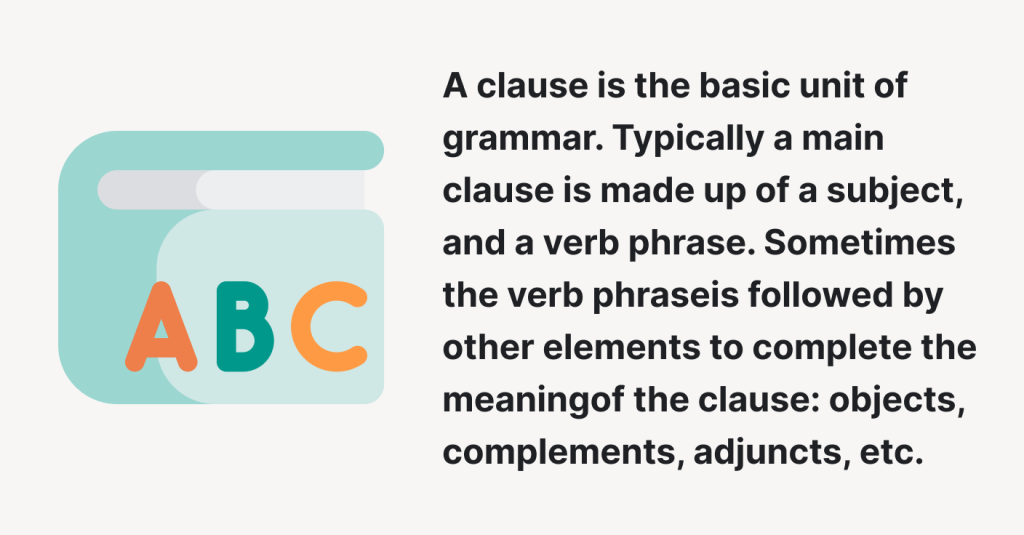
- Clauses and sentences have a subject and predicate. When a group of words is missing a subject and verb, it is called a fragment or phrase:
John smiled — clause
A story as old as time — phrase
- A clause, which can make a complete thought, is independent and can be a sentence:
Eva talks to her best friend.

- When a phrase does not express a complete idea, it is a dependent (subordinate) clause. Every dependent clause needs an independent clause to make it a full sentence:
When I finish my task — sentence fragment, the subordinate clause does not provide a complete thought.
I will play with you when I finish my task — dependent clause is underlined, and main is bold.
Subjects and predicates: grammar basics
The sentence is the basic grammar unit in any language. Complete sentence components are a subject and a predicate:
- The subject tells us what or who the sentence is about: a person, a thing such as an animal, or a place:
Peter built the house for his family.
That dog stole my food.
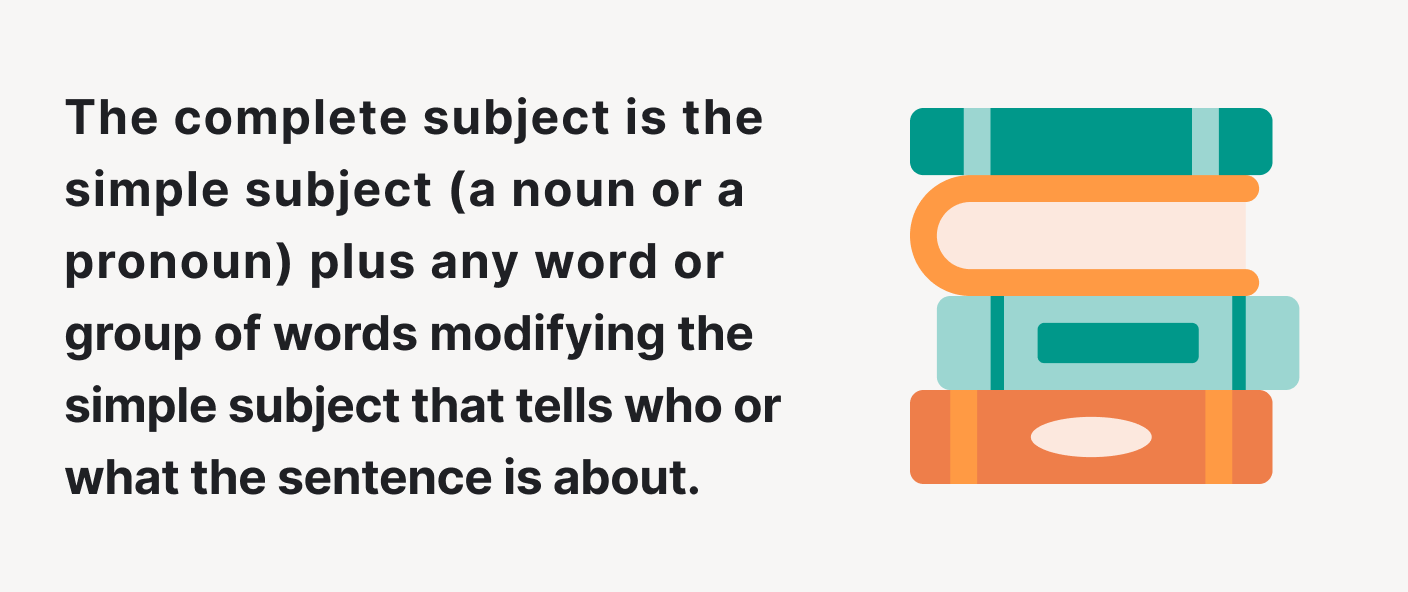
- The predicate describes what occurs in the sentence and includes a verb:
The teacher explained the new topic.
Alex Wand, our neighbor, will play on the school football team.
- Each word in the sentence completes the subject or predicate:
David, the school teacher, | adores traveling. (the school teacher describes David)
During her studies, | Sally | worked at the legal services bureau. (during her studies explains when Sally worked and is related to the predicate yet the phrase is in the beginning)

Parts of speech in the English language
Well, now you know sentence structure basics, so it’s time to discover parts of speech. Every word functions as a part of speech in context and grammatically within the sentence. A single word might act as one or a few parts of speech, depending on the circumstances (e.g., a function may stand in for a noun or verb). That’s why you should understand the difference between the parts of speech. Here they are:
A noun
A noun is a word used for a place, person, thing, animal, idea, quality, activity, or feeling. Typically, nouns are used with definite (“the”) or indefinite (“a,” “an”) articles.
Common nouns start with a lowercase letter, while proper names with a capital letter. Nouns may be plural or singular, abstract or specific. They may act as a subject, object, object of a preposition, or subject complement.
Dog, sister, man, lake
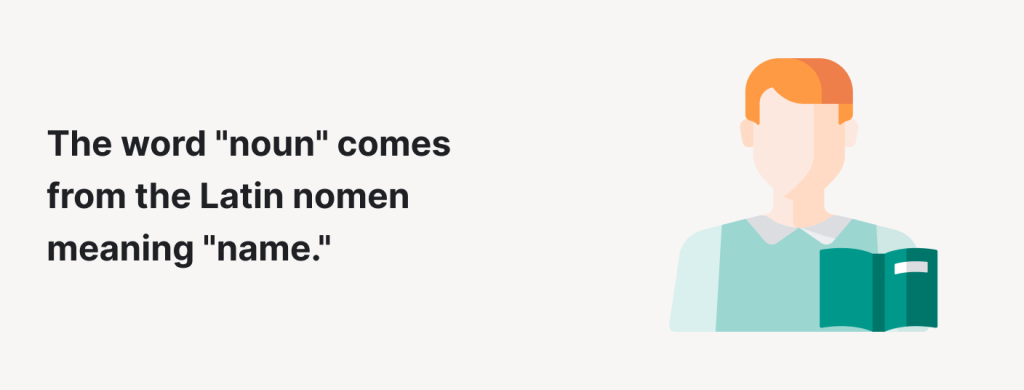
A pronoun
A pronoun is a part of speech that substitutes for a noun. Here’s what characterizes a pronoun: personal (points to specific things or persons), possessive (refers to ownership), reflexive (highlights another noun or pronoun); relative (present in a dependent clause); and demonstrative (identify, refer, or point to the noun).
I, she, his, it, mine, yours, myself
A verb
A verb shows action or being. A verb must comply with a subject in number. This means that both subject and verb should be plural or singular. Verbs take different forms to indicate tense.

Describe, possess, enjoy
An adjective
This part of speech is used to describe or modify a noun or a pronoun. It extends the subject meaning by explaining what kind, which one, or how many, for example.
Ugly, young, red, smart
An adverb
An adverb answers the questions: where, why, when, how, under what conditions. This part of speech explains or modifies another adverb, an adjective, or a verb. It is never used to modify or describe a noun.
Very, slowly, precisely
A preposition
A preposition defines a connection between nouns or pronouns. It is used to show location, time, reason, motion, direction, manner, or possession.
By, beside, about, on
Conjunction
This part of speech joins two words, clauses, or phrases. There are three types of conjunctions: correlative, coordinating, and subordinating:
As … as, hardly … when, neither … nor, not … but, not only … but also, rather … than (correlative conjunctions)
And, so, but, nor, for, or, yet (coordinating conjunctions)
Though, if, than, whether, after, since, while, because, whatever, whoever, how, wherever (subordinating conjunctions)
An interjection
Interjections are used to express emotions.
Oh, hooray, yay, wow
An article
Articles are a kind of adjective usually used with singular nouns. Don’t use articles with nationalities, languages, academic subjects, sports, continents and countries (except the Netherlands and the US), streets, cities, states, bays, lakes (but you should use it with a group of lakes), names of mountains, islands, and more.
Check the Punctuation
To ace English grammar, you should understand basic punctuation rules. Here are some of them:
Capitalization
Every sentence, people’s names, book titles, movie titles, specific places, and organizations, for example, should start with a capital letter.
She visited Italy last summer.
A punctuation mark. All sentences should have a punctuation mark at the end: a period, question mark, or exclamation point (also called exclamation mark).
Will you come to dinner tonight?
His favorite band is Third Day.
Have a lovely day!
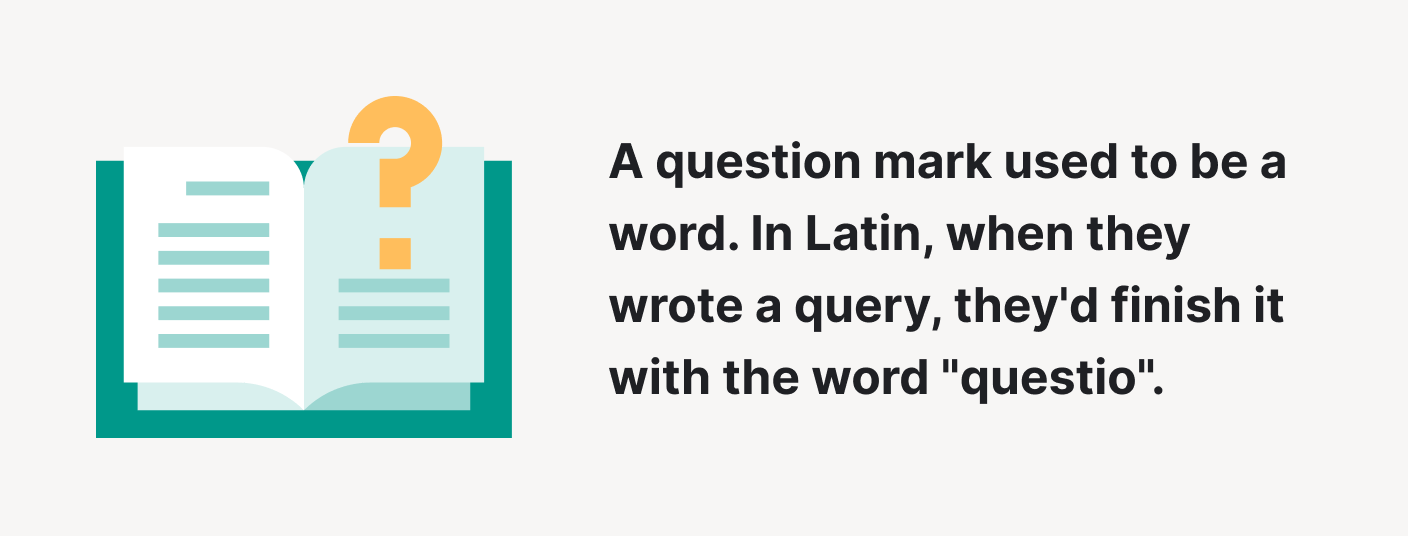
A colon
Use a colon to separate two clauses when the second clause explains or comments on the first. Other cases when you need a colon are introducing a direct quote, or separating a sentence from a list of items.
Alex came earlier than usual: classes were canceled.
You may like these bands: Spice Girls, Green Day, Coldplay.
Gibson’s character said: “They may take our lives, but they’ll never take our freedom!”
A semicolon
You use a semicolon in place of a conjunction. Or to use before a transition. Or to separate a long list that includes commas.
Alice has an exam tomorrow; she would not come to your party.
Alex’s wife tried to stop him from going to work until he got over his illness; however, he couldn’t miss that meeting.
All international students must provide IELTS; prospective students who do not provide all required documents won’t be admitted.
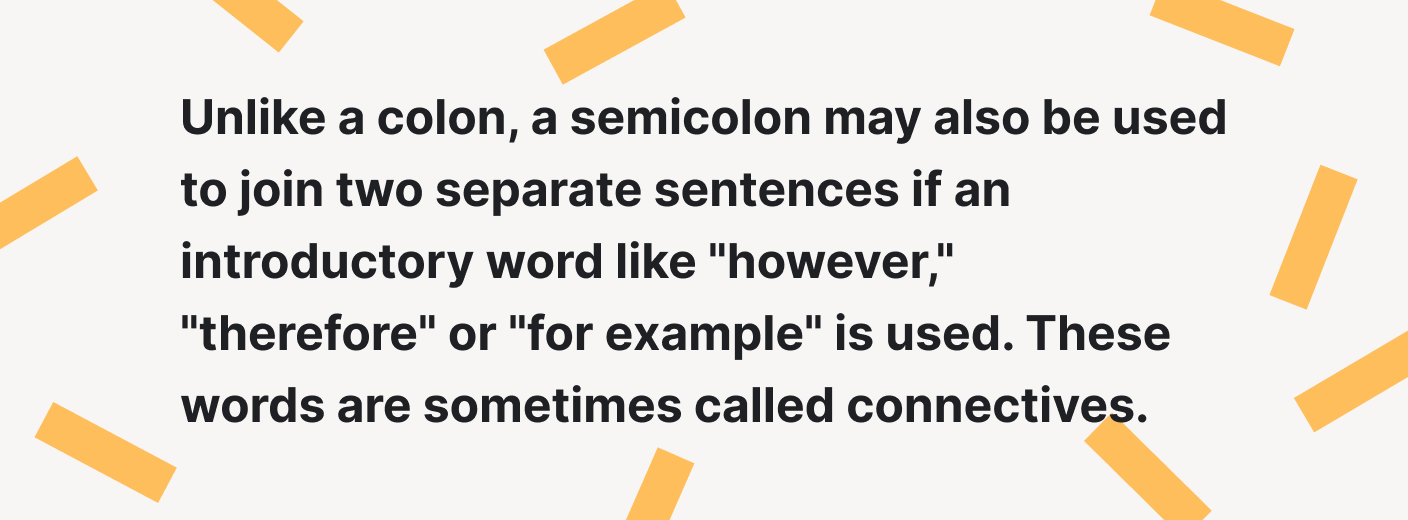
A comma
There are numerous rules for comma use. And here are some on when to use this punctuation mark:
- In a separate list of three or more things:
She visited Rome, Venus, Napoli, and Salerno.
- After an introduction and before a quote:
Mary laughed, “This is ridiculous! It cannot be true!”
- After quotation marks (except when the quote ends with an exclamation or question mark):
“It was an exciting weekend,” Liam said.
- To separate digits in complex numbers:
The total is 25,343.
- To present the day of the week before the date:
He will return on Saturday, May 6.

- To separate a date before the year:
The book will be released on October 10, 2018.
- Before the name when there is a direct address:
Could you give me that pen, Anny?
- In dialogue around names:
How many times, Lisa, did you try to resolve that issue?
- To connect two or more independent clauses:
Are you leaving tomorrow, or will you stay for another week?
- To separate a dependent clause when it isn’t crucial to the sentence, or when it is before the independent clause:
She didn’t take her bag, because she was in a hurry.
Although he bought a flower, he missed the date.
- To separate interrupters in the sentence:
The dog, of course, was surprised by this action.
Parentheses
Parentheses are used to clarify or provide aside information:
Those shoes are quite expensive ($1,200).
An apostrophe
You need an apostrophe to show possession or in contractions:
That is Michael’s bag in the corner.
I’ll meet you tomorrow.
Now you’ve learned some basic English grammar and punctuation rules. It’s time to discover the most common grammar mistakes in English to avoid.
50 Common Mistakes in English
Are you ready to jazz up your writing skills? Then let’s take a closer look at common grammar mistakes to avoid when you want to learn English fast and sound like a native:
- Subject-Verb agreement mistakes
One of the most common errors in English is subject-verb disagreement. When you use a singular subject in a sentence, use a singular verb. The same rule applies to a plural subject and its verb.
She have beautiful hair. — wrong
She has beautiful hair. — right
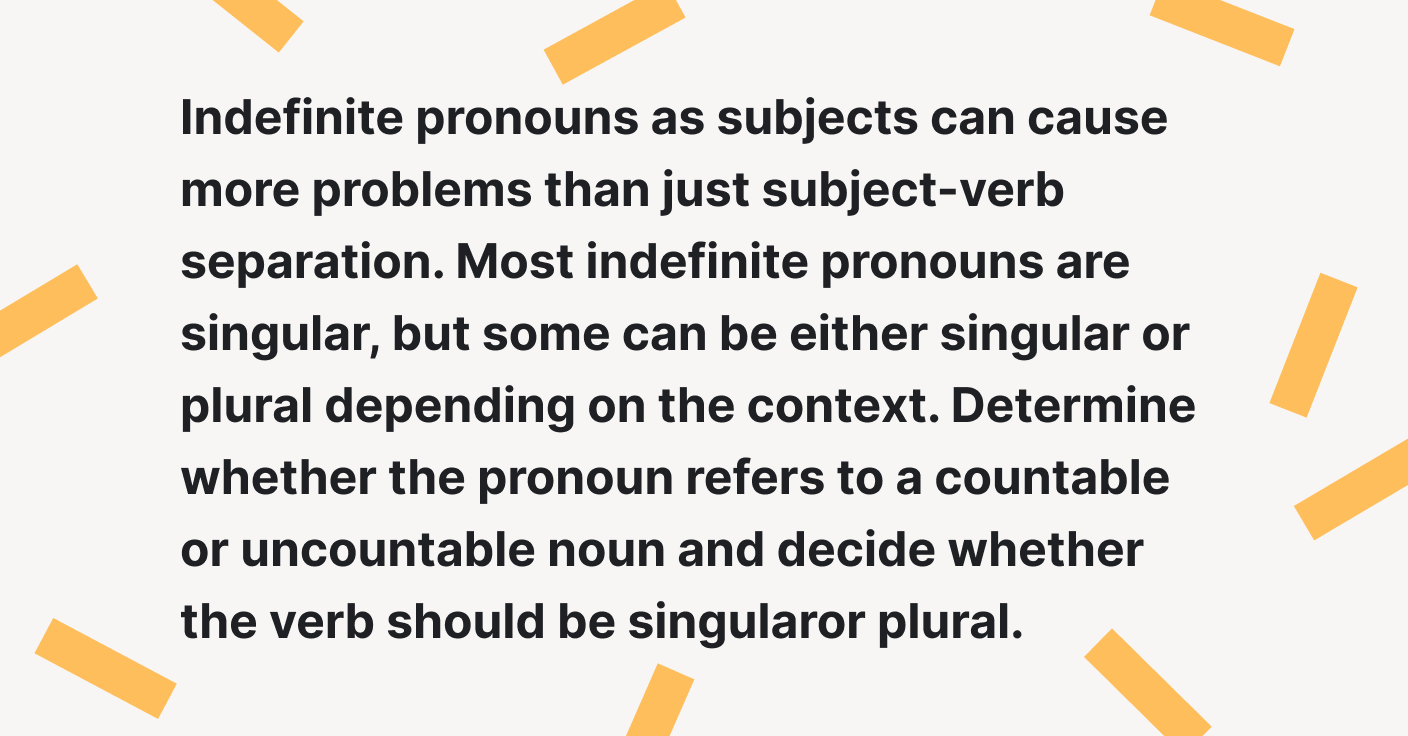
- Sentence fragment errors
Using phrases without an accompanying independent clause is another typical mistake that most ESL students make. As we mentioned above, every dependent clause needs a coordinate clause.
He dropped the class. Despite everything. — wrong
He dropped the class despite everything. — right

- An introductory element without a comma
An absent comma after an introductory clause, phrase, or word is among the errors you should avoid.
In case you forgot I’m still waiting for your call. — wrong
In case you forgot, I’m still waiting for your call. — right
- Incorrect use of “Its” with an apostrophe
You need an apostrophe only to use “its” with verbs “is” or “has.” If you have to write about belonging, use “its.”
I don’t believe its your car. — wrong
I don’t believe it’s your car. — right
The dog is playing with it’s tail. — wrong
The dog is playing with its tail. — right
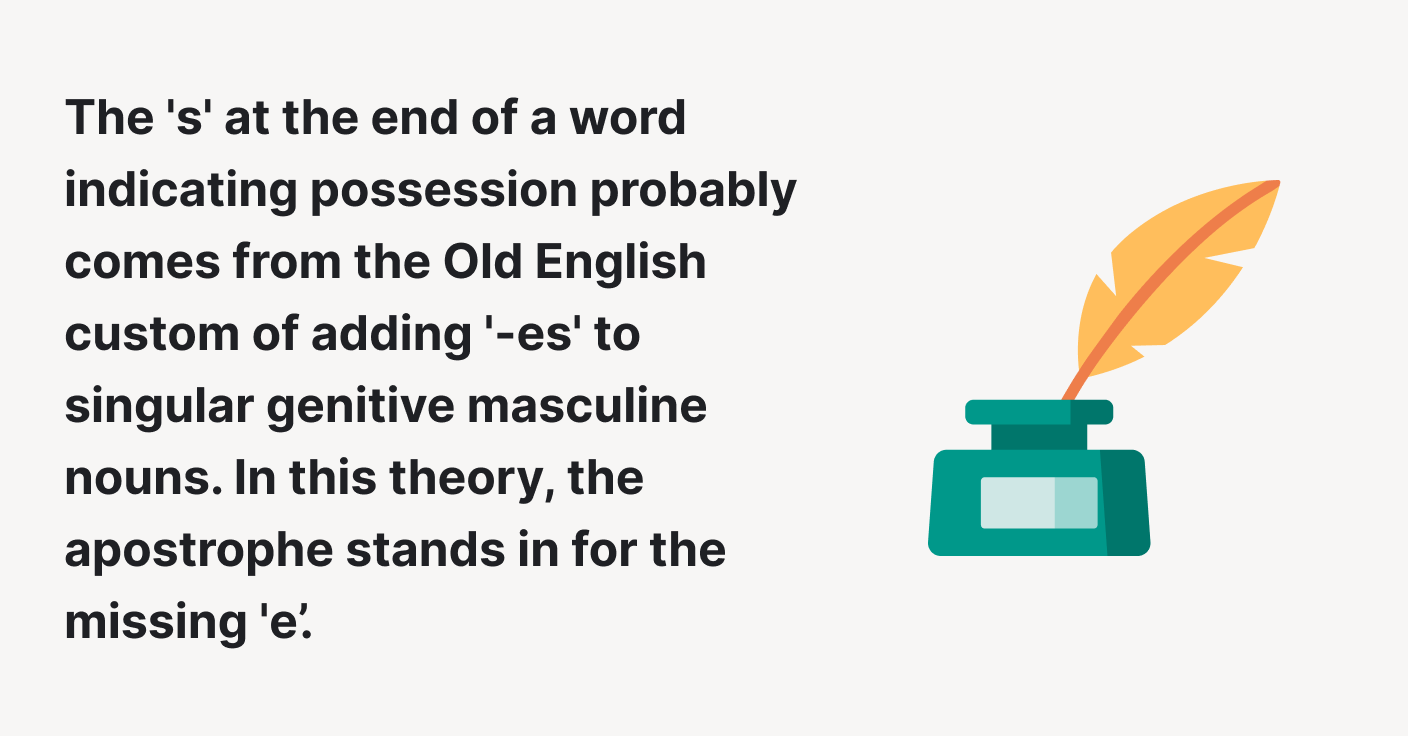
- Missing comma in a compound sentence
Don’t underestimate the importance of a comma in a compound sentence. Why? Because it breaks up two or more independent clauses that are separated by a conjunction.
Thomas jumped into his car and he drove away before Mary noticed. — wrong
Thomas jumped into his car, and he drove away before Mary noticed. — correct
Kate was happy and she was beautiful and she was full of life. — wrong
Kate was happy, and she was beautiful, and she was full of life. — right
- Dangling modifier
A dangling modifier is a word, phrase, or clause that is incorrectly placed in the sentence.
While walking on the shore, Mary found a lost neighbor’s toy. — wrong
While walking on the shore, Mary found a neighbor’s lost toy. — right
- Ambiguous pronoun reference
Among common grammar mistakes in English, you should avoid — a vague pronoun reference is a tricky one. What does that even mean? An unclear pronoun reference includes one of these words: that, this, it, which. When using these pronouns, be careful: they can confuse the reader about to whom or what the pronoun refers.
When John finally met Kevin, he was happy. — wrong (who was happy: John or Kevin?)
John was happy when he finally met Kevin. — right

- Fused sentence
A fused sentence is also called a run-on sentence.
You may ask…
What is a run-on sentence and how can you avoid it? A fused sentence means that you connected two independent clauses without punctuation. Don’t underestimate the importance of a punctuation mark!
Linda wanted to take that pen her brother took it first. — wrong
Linda wanted to take that pen, but her brother took it first. — right
- Faulty parallelism
Lack of parallel structure takes place in a sentence when two or more units are the same in meaning but not grammatically similar or parallel in form. You may make this error in items in a series or paired constructions.
Stacy is thinking about studying programming, engineering, manager, or marketing. — wrong
Stacy is thinking about studying programming, engineering, management, or marketing. — right

Another example of faulty parallelism is a sentence with too many similar phrases.
Mason was planning to attend his grandmother’s birthday party next weekend, but at the last minute his flight was canceled so that he couldn’t attend the party, and he felt guilty about it. — wrong
Due to a canceled flight, Mason couldn’t attend his grandmother’s birthday party. He felt guilty about missing it. — correct
- Redundant comma
Among common writing mistakes is using commas when they aren’t necessary.
Ann dreamed of becoming a doctor, or an engineer. — wrong
Ann dreamed of becoming a doctor or an engineer. — right
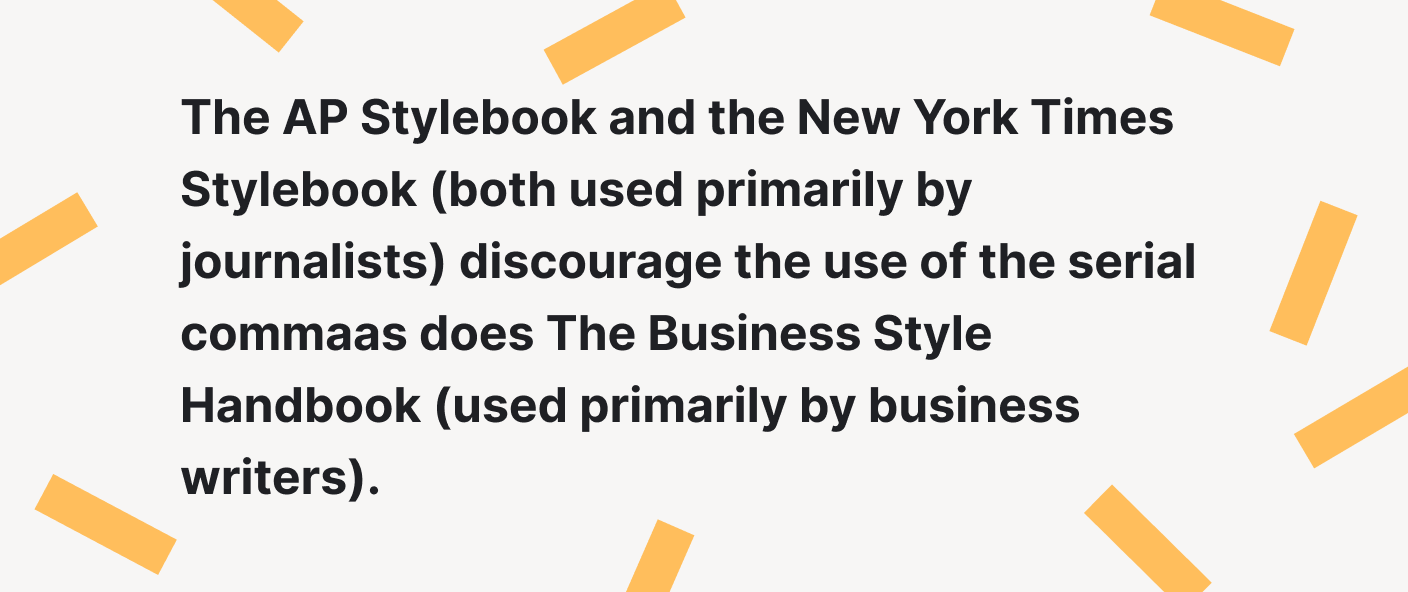
- A comma splice
How often do you make a comma splice when using transitional words like however, therefore, and furthermore? Try to avoid this mistake! A comma splice may arise when you join two independent clauses with only a comma instead of a semicolon or breaking them into two separate sentences.
Rob wanted to ask her for a date, however he did not dare. — wrong
Rob wanted to ask her for a date; however, he did not dare. — right

- Colon writing mistakes
There are three common misuses of the colon you should avoid in your writing:
- Don’t use it instead of a comma
To complete your registration: provide the verification number. — wrong
To complete your registration, provide the verification number. — right
- Don’t use it between a preposition and prepositional complement
Arthur obtained degrees in: computer science, management, and engineering. — wrong
Arthur obtained degrees in computer science, management, and engineering. — right
- Never use two or more colons in the same sentence.
Her thoughts were melting: Charlotte was thinking about her life: how it had changed since she got married. — wrong
Her thoughts were melting. Charlotte was thinking about her life: how it had changed since she got married. — right
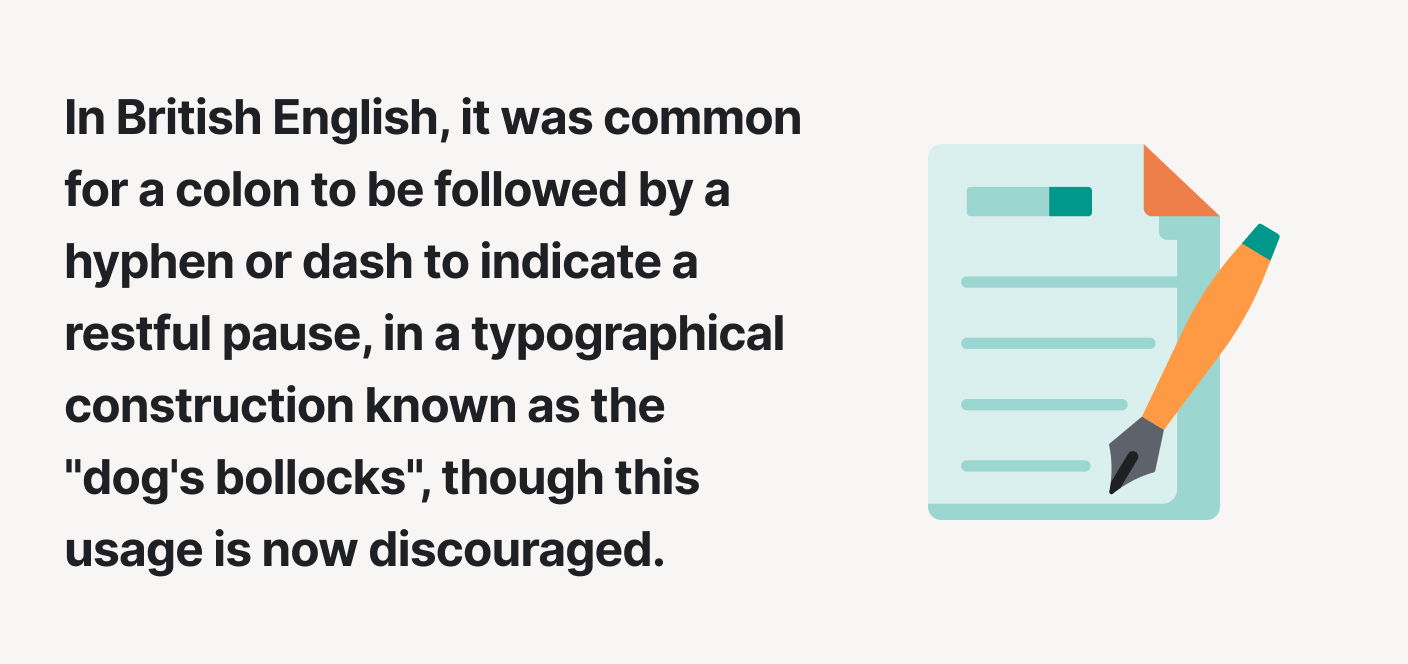
- Split infinitive
Do not separate the verb and the word “to” with another word. No grammar rules explicitly prohibit split infinitives, but a lot of experts discourage the use of them.
Mom wanted to quickly finish the cooking before going to the doctor. — wrong
Mom wanted to finish the cooking quickly before going to the doctor. — right
- Misplaced apostrophes
It’s not hard to avoid this mistake if you know the rules. If you want to indicate something belonging to more than one person, use the possessive apostrophe after “s.” In another case, put it before “s.”
You may also use an apostrophe to shorten words. For example, “he’s” shows that the word is missing ‘i” from “he is.”
Never use an apostrophe to make a word plural. Never!
The dog’s are in the yard. — wrong
The dogs are in the yard. — right
Janes cat is on the sofa. — wrong
Jane’s cat is on the sofa. — right.
Any medical manipulation requires both parents consent. — wrong
Any medical manipulation requires both parents’ consent. — right
And now let’s talk about commonly misused words and phrases. Even one incorrectly used word may ruin your writing. So, below you’ll find the most frequent incorrectly used words:
- Misuse of “Would/Could/Should of”
You may make this writing mistake because of the sound of the contracted form of “would have” — “would’ve.” If you say it out loud, you may hear “would of.”
We could of gone to the cafe today. — wrong
We could have gone to the cafe today. — right
- Wrong usage “fewer” and “less”
Do you know the difference between the words “less” and “fewer”? Most non-native speakers use “less” when they mean “fewer.”
So how can you distinguish between them?
Use “Fewer” when you can count items individually. In other cases choose “less.”
There are less cars now. — wrong
There are fewer cars now. — right
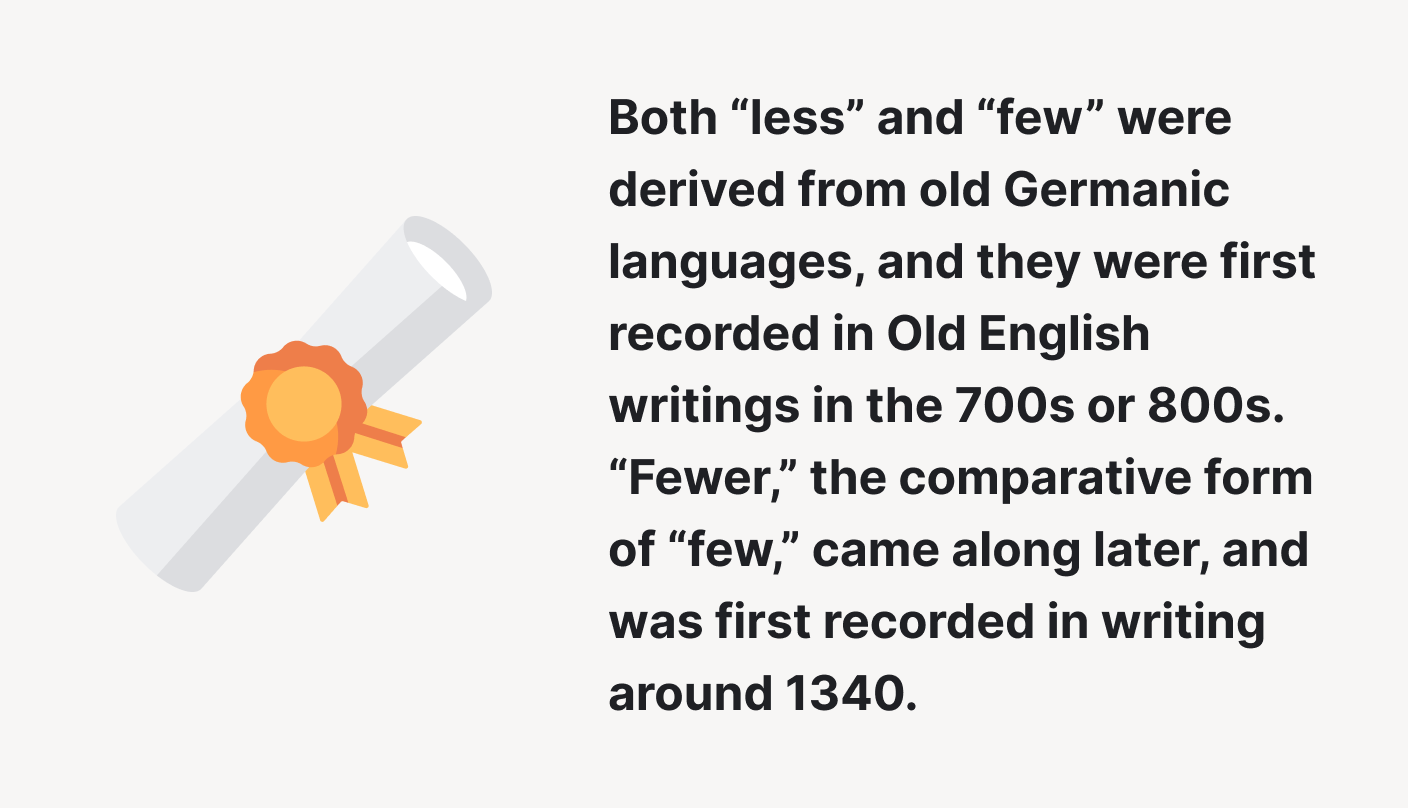
- Misuse of “amount” and “number”
Another mistake, similar to the previous, is the incorrect use of “amount” and “number.” Remember: the word “number” applies to individual things. Otherwise, use “amount.”
A greater amount of students are studying math. — wrong
A greater number of students are studying math. — right
- Improper use of “To,” “Too,” and “Two”
No article on homophones would be complete without these common errors in writing English. “To,” “too,” and “two” sound alike, so it’s easy to get this one wrong.
How can you avoid this error?
All you need is to remember three simple rules. First, use the word “to” if the meaning is “toward” or in the infinitive form of a verb. Second, “too” is a synonym for “as well” or “also.” Third, “two” means the quantity or number 2.
It’s time too watch our movie. — wrong
It’s time to watch our movie. — right
I’m going two the store. — wrong
I’m going to the store. — right
Is she coming to the store to? — wrong
Is she coming to the store too? — right
Maison bought to umbrellas. — wrong
Maison bought two umbrellas. — right

- Misuse of “Me,” “myself,” and “I”
Another problem arises from confusion over how to refer to oneself. Here we will guide you whether to use “myself,” “me,” or “I.” If you refer to yourself and another person, you should put their name first. To use “I” or “me,” take out their name and see which will sound right. If you already used “I” as the sentence’s subject, put “myself.”
Myself and Tasha are off to the club. — wrong
Tasha and I are off to the club. — right
Let John and I check this task. — wrong
Let John and me check this task. — right
Here’s what the sentences look like when taking out the other name. You can see that this is a good trick to help you figure out which word to use:
Myself is off to the club. — wrong
I am off to the club. — right
Let I check this task. — wrong
Let me check this task. — right
- “Invite” vs. “Invitation”
Misuse of these two verbs is one of the most common grammatical errors. Remember, it is grammatically correct to use “invite” as a verb and “invitation” as a noun.
You haven’t responded to my invite! — wrong
You haven’t responded to my invitation! — right
- “Who” vs. “whom”
Another common mistake in English sentences you should know about if you want to learn English fast is an incorrect reference to people. It’s simple to avoid the error if you know to what part of the sentence the word refers. If it refers to the object, you should use “whom.” If it relates to the subject—use “who.”
Note: if you refer to a person, don’t use “that.”
Who shall I ask for help? — wrong
Whom shall I ask for help? — right
Whom is on duty today? — wrong
Who is on duty today? — right
Sally was the only person that wanted to help him. — wrong
Sally was the only person who wanted to help him. — right
- “i.e.” vs. “e.g.”
Confusing these two abbreviations is easy. Nevertheless, they have different meanings. The abbreviation “i.e.” stands for the Latin phrase “id est.” Use it when you want to say “in other words” or “that is.” The abbreviation “e.g.” comes from “exempli gratia,” more Latin words that mean “for example.”
Note: try to avoid these shortened versions in formal documents. Instead, write out the meaning.
Tim likes different music styles, i.e., rock, classics, and folk. — wrong
Tim likes different music styles, e.g., rock, classics, and folk. — right
- “Emigrate” vs. “immigrate”
These two words seem similar. Nevertheless, they have a different meaning. When you speak about leaving a country, use “emigrate from.” In the case when you mean to go somewhere, use “immigrate to.”
Scarlet immigrated from Ireland. — wrong
Scarlet emigrated from Ireland. — right

- “Adverse” vs. “averse”
Many people misuse the words “averse” and “adverse.” To use them in a sentence correctly, you should understand their meaning.
Adverse is used in the context “unfavorable” or “harmful.” Averse expresses dislike or feelings of opposition.
Averse market conditions led to a drop in demand. — wrong
Adverse market conditions led to a drop in demand. — right
- “Award” vs. “reward”
Here’s another thing on the list of common writing mistakes to avoid. And it’s not hard to prevent. Remember: reward is something you get or give in return for hard work, merit, achievement, or effort. And an award means a prize.
He won an Emmy Reward. — wrong
He won an Emmy Award. — right
- “Between” vs. “among”
Both of these words mean the middle of two points. But you should understand the difference. Choose “between” if you name individual and separate items. If there are three or more things not named separately, use “among.”
We will decide among Steven, Marcia, and Jeremiah to fill the opening. — wrong
We will decide between Steven, Marcia, and Jeremiah to fill the opening. — right
- “Peak” vs. “peek”
You should keep in mind that “peak” with an “a” means the highest point of a mountain. And “peek” is used for a quick look.
Sneak peak for the week. — wrong
Sneak peek for the week. — right
Richard reached the peek of Mount Mitchell. — wrong
Richard reached the peak of Mount Mitchell. — right

- “Bring” vs. “take”
You use these words when talking about something you need to carry or move.
You may ask…
What’s the difference? Simple! You take a thing here and bring it there.
Can you take your book to John’s party? — wrong
Can you bring your book to John’s party? — right
- “Continually” vs. “continuously”
If you think that these words have the same meaning, you’re wrong. But not alone. Use “continually” to refer to something that has a start and an end. And “continuously” to refer to something never-ending.
Your efforts to improve work conditions are continual. — wrong
Your efforts to improve work conditions are continuous. — right

- “Discreet” vs. “discrete”
Only one misplaced letter can change the meaning of your sentence. To avoid this mistake, you should know what each word means. Use “discreet” to describe something cautious, careful, showing good judgment. “Discrete” refers to an individual, distinct, or separate thing.
Scientists analyze data from various discreet sources. — wrong
Scientists analyze data from various discrete sources. — right
- “Invoke” and “evoke”
Here’s another common writing mistake to avoid. Both verbs sound similar but have completely different meanings. Use “to invoke” when you mean “call upon something” or “put into effect.” “To evoke” means “to induce” or “to stimulate.”
All your efforts invoke positive emotions in customers. — wrong
All your efforts evoke positive emotions in customers. — right
- “Further” or “farther”
It’s not hard to distinguish between these words. “Farther” refers to a physical distance and “further” — to a figurative distance.
Texas is further from Washington than Idaho. — wrong
Texas is farther from Washington than Idaho. — right
To “infer” means “conclude” or “deduce.” To “imply” means “indicate” or “suggest.” As you can see, there’s nothing too tricky about these words.
You inferred that his vacation might be at risk. — wrong (the vacation issue is not settled yet)
You implied that his vacation might be at risk. — right

- “Regardless” or “irregardless”
Sometimes you may hear the word “irregardless” with the meaning of “without respect to” or “without regard to.” “Regardless” has the same meaning.
But some people reason as follows: the prefix ir- means “not.” So, when joined up with “regardless,” you’ll get a word meaning “with regard to.”
The Oxford Dictionary states that “irregardless” is incorrect in standard English.
- “Principal” vs. “principle”
A principle refers to something fundamental. And principal is used for something primary. For example, a principal is the primary leader of a school.
Our corporate culture is based on responsibility and fairness principals. — wrong
Our corporate culture is based on responsibility and fairness principles. — right
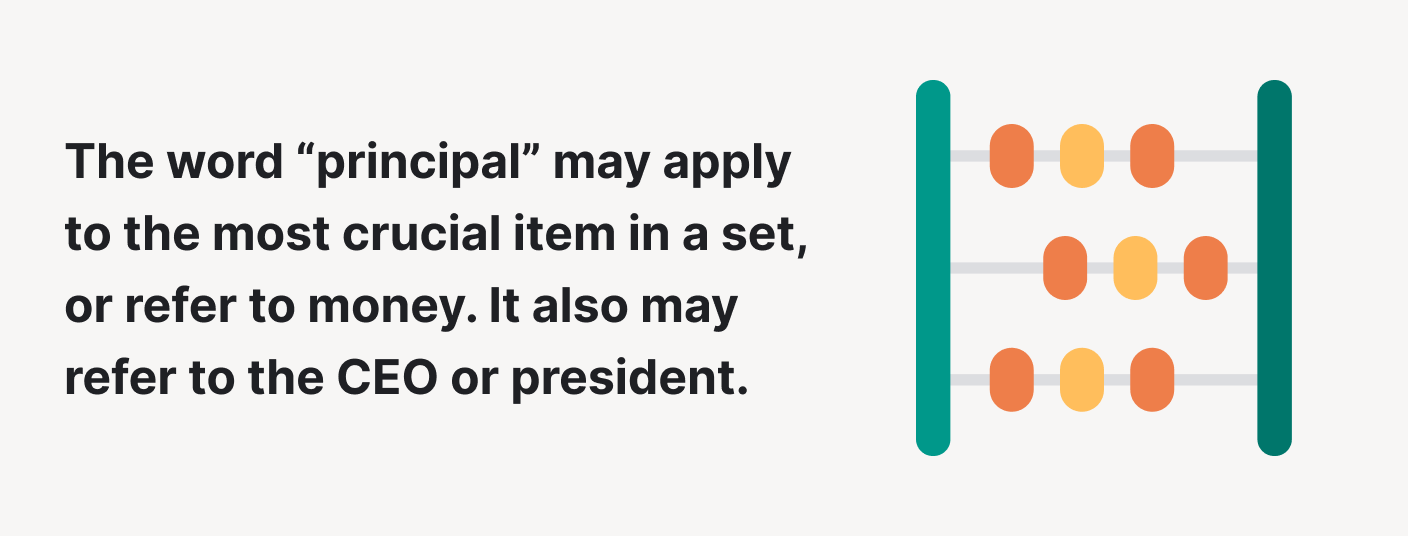
- “Systematic” vs. “systemic”
Are you wondering which word to choose? Systematic will be almost always the right word. It means carried out or arranged to a plan or system.
Systemic refers to something that affects or belongs to a particular system as a whole.
He takes a systemic approach to personal development. — wrong
He takes a systematic approach to personal development. — right
- “Empathy” vs. “sympathy”
These two words are about feelings. But when do you use “sympathy” or “empathy”?
You should use “sympathy” when you talk about understanding another person’s feelings. “Empathy” means the ability to see through the other person’s eyes and relate to how the person feels. You can empathize because you’ve already experienced the same feelings.
- “Stationary” vs. “stationery”
Think about writing materials: envelopes, letterhead, office supplies, etc. “Stationery” refers to these objects. When you are writing about something fixed, not moving, use “stationary.”
You can buy cheap stationary at our shop. — wrong
You can buy cheap stationery at our shop. — right
- “Penultimate” vs. “ultimate”
Just take a look at these words and see how a small prefix can change their meaning. You use “ultimate” when referring to the last, or final, or the best.
But…
If you add the prefix pen-, you get a word meaning “second to last” or “next to last.”
That burger was the penultimate. — wrong
That burger was the ultimate. — right

- “Moot” or “mute”
The word “moot” can have different meanings: in British English, it refers to debatable. In U.S. English, you use it to apply to something that has no practical importance.
And “mute” refers to unspoken or to quiet something.
Could you moot the sound, please? — wrong
Could you mute the sound, please? — right
- “Affect” vs. “effect” vs. “impact”
Many people misuse these three words. Let’s figure out what each one means so you can learn English fast and efficiently.
First, you should use “affect” when you mean influence. Second, “effect” means to accomplish or a result/consequence. Third, if you mean to strike or a collision, use “impact.”
Impatient customers effected our opening time. — wrong
Impatient customers impacted our opening time. — wrong
Impatient customers affected our opening time. — right
- “Elicit” vs. “illicit”
Illicit refers to something unlawful. Elicit means to draw or bring out.
When her sister asked Sally a question, it would often illicit a strange response. — wrong
When her sister asked Sally a question, it would often elicit a strange response. — right
- “Criteria” vs. “criterion”
A criterion refers to a standard or principle. Use “criteria” for the plural form.
The red color was her main criteria. — wrong
The red color was her main criterion. — right

- “Compliment” vs. “complement”
Here are another couple of words where only one wrong letter could ruin the impression. Use “compliment” when referring to saying something sweet.
Complement means enhanced, improved, completed, added to, or brought close to perfection.
This new app would compliment our marketing strategy. — wrong
This new app would complement our marketing strategy. — right
- “Every day” vs. “everyday”
If you’re in doubt which word to choose, there’s a simple way to make the right decision. If you can replace it with “each day,” write “every” and “day” separately. Write “everyday” together when you talk about something commonplace and meaning “daily.”
Her every day clothes are dirty. — wrong
Her everyday clothes are dirty. — right

- “Along” vs. a “long”
Here’s another example of often miswritten words: “along” and “a long.” Along refers to moving in a line or constant direction, or in the company of others. “Long” means of duration or great distance.
I walked a long the street. — wrong
I walked along the street. — right
- “Awhile” vs. a “while”
Use “a while” when writing about a period or interval of time. The adverb “awhile” refers for a short time or period.
Let me stay here for a while. — wrong
Let me stay here for awhile. — right
I would be at home in awhile. — wrong
I would be at home in a while. — right
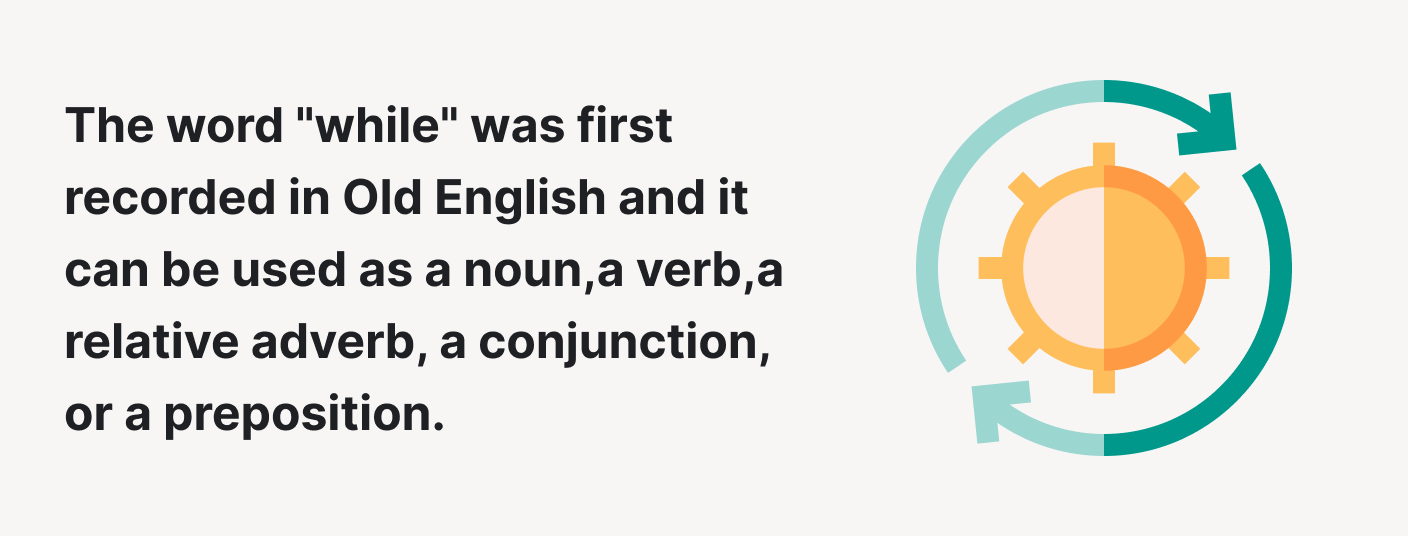
- “Any way” vs. “anyway”
Read the phrase out loud when you’re struggling over whether you should write it separately or concurrently. If there is a small pause between “any” and “way,” you should write two words.
Is there anyway he can help me? — wrong
Is there any way he can help me? — right
- “Good” vs. “well”
You should use the adjective “good” when you want to describe a noun (person, place, or thing). In the case where you need to characterize a verb (an action), you must use the adverb “well.”
You can do a well job. — wrong
You can do a good job. — right
- “Whether” vs. “if”
These two words are often interchangeable. You can choose either “if” and “whether” if there is a yes/no condition:
I wonder whether Jimmy will complete the task on time?
I wonder if Jimmy will complete the task on time?
In the sentences above, the conjunction “whether” sounds less formal. Think about your audience when choosing the conjunction.
But what if there’s no “yes/no” condition involved? Use “whether” when the sentence is not conditional and “if” when it’s conditional.
Extend Your Vocabulary
One of the keys to successful English language learning is to expand your vocabulary continuously.
And here’s why:
First, you will be able to write and speak more concisely and clearly. Second, other people will understand you without as much difficulty. Third, you will feel more confident when talking to a native English speaker.
It’s not too hard to improve your vocabulary and learn new words. Just try these six simple tips:
- Keep reading. As we said before, the more you read, the more words you’ll learn.
- Hold a dictionary and thesaurus close. You may try online services, or apps for your mobile device, or even printed version. Doing this will help you to learn pronunciation, meanings, and similar phrases. You’ll learn the nuances of using a particular word or phrase.

- Keep a running list of new words. Bottom line? Writing will ease memorizing new words and idioms. You may always refer back to your journal and slowly implement them into your daily speech.
- Learn new words every day. Exploring a word a day will keep poor language away. Ivypanda’s tip: use a word of the day app or calendar.
- Understand the roots. Latin and Greek elements, like roots, prefixes, and suffixes, are an expressive part of English. Discovering these aspects will ease English language learning.
- Keep talking. There are a plethora of online and offline communities where you can speak to other people in English and extend your language skills.
Well, there are the key points of improving your vocabulary. Do you want more tips and sources on how to learn English fast? Keep reading!
Tailor Your English With YouTube
Did you know that you can learn English while watching YouTube videos? If not, you should check out these seven channels that will boost your English:
- Let’s talk
Over 1,000 English learning videos are available on the Let’s Talk YouTube channel. Take advantage of the latest web technologies and high-quality ESL teaching.
- Daily English Conversation
Here’s another free channel that will teach you how to speak English. You will find grammar lessons with examples, English speaking practice, and more!
- Cambridge English
Take a look at this channel from the University of Cambridge. Build the confidence and ace your English skills with these world-class English teachers. Here you’ll find a lot of tips and lifehacks on passing CAE and IELTS tests, grammar, and speaking lessons.
- Learn British English
Have you ever dreamed of speaking fluent English with that charming British accent? If the answer is “yes,” you should subscribe to this channel. Both adults and children will find exciting lessons to learn British English phrases and idioms, pronunciation and accent, vocabulary, and grammar from an experienced native teacher.
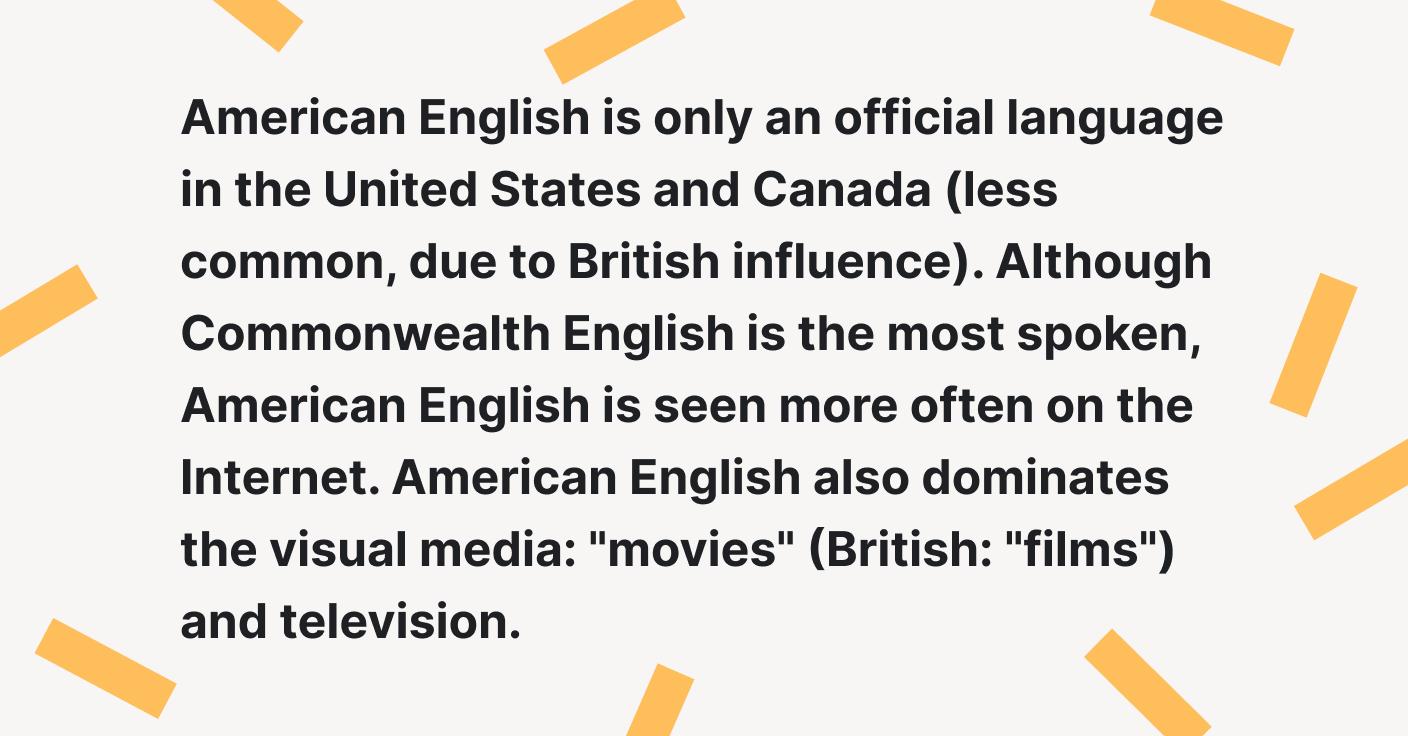
- Learn English 360
Practice English with the Learn English 360 channel. Over 1,500 videos will help you to improve your conversation, vocabulary, and grammar skills.
- BBC Learning English
Perhaps, one of the most popular channels to learn English online. Improve your language on a daily basis: from lessons on pronunciation and vocabulary to ELT tips for teachers. You can find an answer to almost any question you may have while learning English.
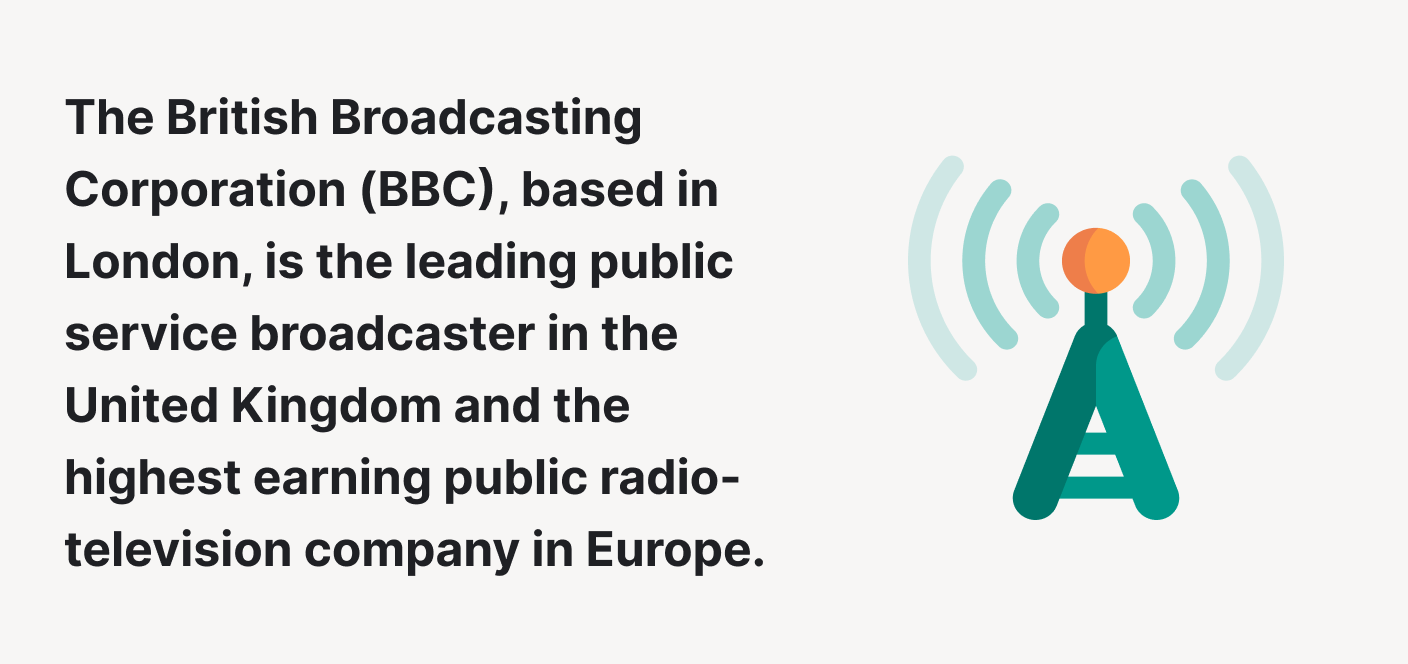
- VOA Learning English
How about free English lessons in a TV news report format? Check out the famous Voice of America channels. Here you will find exciting lessons on health, economics, agricultural topics, daily grammar videos, and more. Improve your English while watching the news.
Well, now you know how to learn English fast.
Bonus: The 9 Best Language Learning Apps to Ace Your English
Can you imagine your life without a smartphone or a tablet? No? Then you should check out these free English study apps:
LearnEnglish Grammar is a mobile learning app, developed by British Council. Whether you are a beginner or study at an advanced level, this app is for you. It covers twelve grammar topics at each study level with 20+ exercises per topic.
Available on: Android, iOS
Duolingo is an excellent app to learn English daily. All you need is to register and set up your goals: from 5 to 20 minutes of study every day. Interactive quizzes and games will help you to jazz up your pronunciation, vocabulary, and grammar. To unlock new lessons, you complete previous modules.
Track your progress and achieve high results with Duolingo.
Available on: Android, iOS, Windows 10, Windows 10 Mobile, Windows Phone 8.1
Are you ready to practice English speaking real-time? Try Lingbe. The app connects you with native speakers around the world. Help someone to learn your native language, and they will help you to master your English. Now you can not only study English but also discover new cultures and make friends.
The interface and rules are incredibly transparent. Choose your native language and the one you want to learn. Tell about your interests. That’s all—you are ready to start!
Available on: Android, iOS
Learn English Daily is a small and simple app that will help you to build up your vocabulary. Listen to thousands of words and phrases, improve pronunciation, and memorize new lexemes.
Available on: Android, iOS
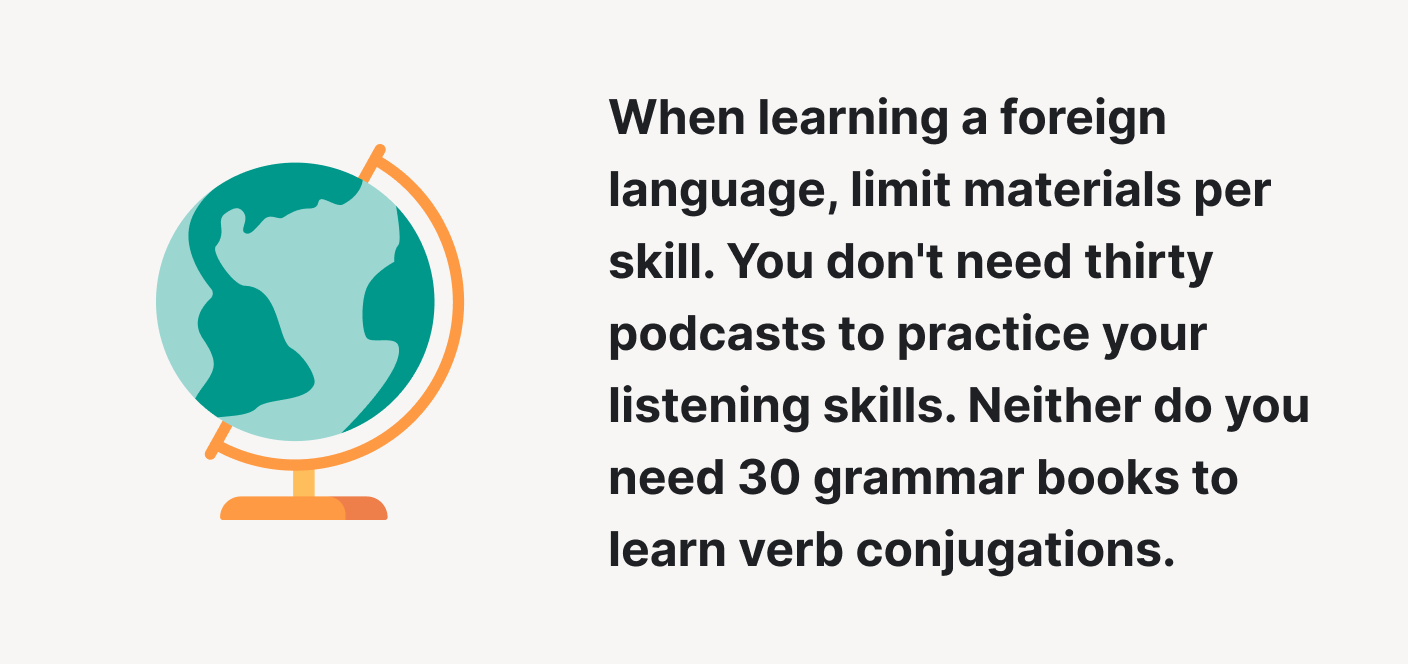
Start speaking English from the first lesson you take with the EnglishClass101 app. Over 100 video and audio lessons are available for you. All you need is to install the app and sign up with your EnglishClass101 username and password or create a new account.
Available on: Android, iOS, Kindle Fire
Busuu is an easy to use and flexible app that allows you to choose a language and learning level. Whether you pick the Beginner, Intermediate, or Upper Intermediate level, or Travel, you will boost your vocabulary and grammar.
Note: for some words and quizzes the app may require a premium account.
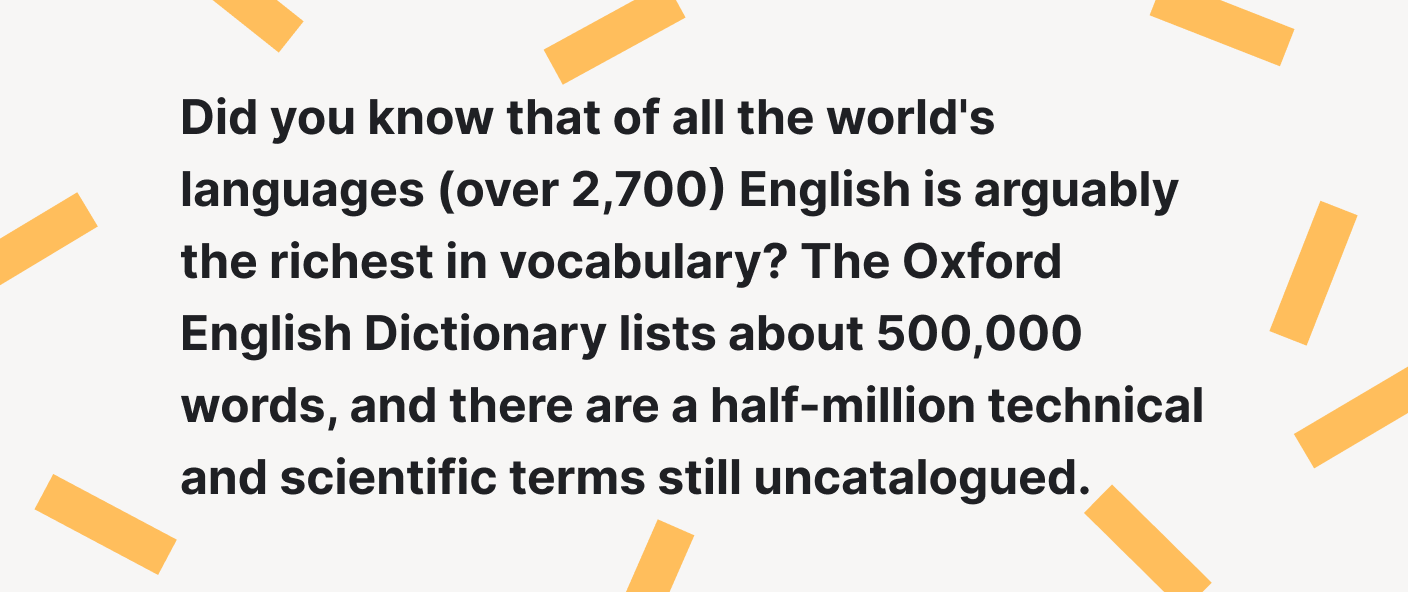
Available on: Android, iOS
Are you an audiobooks lover? Then Beelinguapp is for you. Listen to novels and stories and read the text side by side in your native language. The app has a karaoke audio reading feature!
Available on: Android, iOS
Similar to Lingbe, HelloTalk connects you with native speakers. The app allows you to view users profiles, send text and audio messages. Video calls are also available. Make new friends around the world while learning the language.
Available on: Android, iOS
Tandem is another excellent app that allows you to master your English while talking to native speakers. Find your partner, set a time for a chat or voice call, pick the topic, and learn a new language. The app offers lessons with professional tutors (this feature is paid). You will need a Google or Facebook account to sign up.
Available on: Android, iOS
Do you have any lifehacks on how to learn English fast? Share it with us in the comments below!
And don’t forget that the IvyPanda team is always here to help you with any academic task during your studies.



